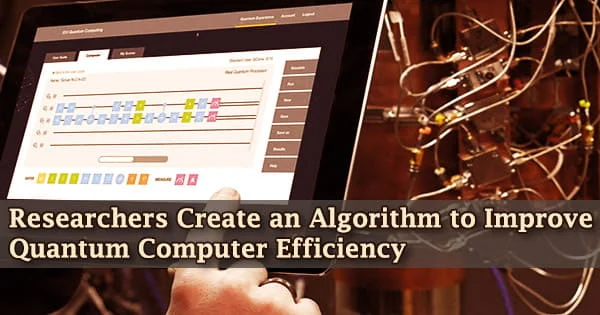Due to research conducted in collaboration between the University of Helsinki, Aalto University, University of Turku, and IBM Research Europe-Zurich, quantum computing is taking a new step forward.
A group of researchers has developed a method for reducing the amount of calculations required to read data stored in a quantum processor’s state. Quantum computers will become more efficient, faster, and ultimately more sustainable as a result of this.
Quantum computers have the potential to tackle crucial issues that are beyond the grasp of even the most powerful supercomputers, but they necessitate a completely new approach to programming and algorithm development.
Universities and major tech firms are leading the charge in developing these new algorithms. In a recent collaboration between the University of Helsinki, Aalto University, University of Turku, and IBM Research Europe-Zurich, a team of researchers have developed a new method to speed up calculations on quantum computers. The findings were published in the American Physical Society’s journal PRX Quantum.
Unlike traditional computers, which use bits to store ones and zeros, quantum processors store information in the form of a quantum state, or a wave-function, according to Guillermo García-Pérez, a postdoctoral researcher at the University of Helsinki’s Department of Physics and the paper’s first author.
The quantum state used is, in fact, generally impossible to reconstruct on conventional computers, so useful insights must be extracted by performing specific observations (which quantum physicists refer to as measurements).
García-Pérez
Reading data from quantum computers thus necessitates the use of special processes. Quantum algorithms also require a collection of inputs, such as real numbers, as well as a list of operations to be done on some initial state reference.
“The quantum state used is, in fact, generally impossible to reconstruct on conventional computers, so useful insights must be extracted by performing specific observations (which quantum physicists refer to as measurements),” says García-Pérez.
The issue here is that many common quantum computing applications require a huge number of measurements. For example, the Variational Quantum Eigensolver, which can be utilized to overcome significant restrictions in chemistry research, such as in drug development.
Even if only partial information is necessary, the number of calculations required is known to expand rapidly with the size of the system being simulated. This makes it difficult to scale up the operation, slowing it down and consuming a lot of processing resources.
García-Pérez and co-authors present a method that uses a generalized class of quantum measurements that are adopted throughout the calculation to efficiently retrieve the information held in the quantum state. This dramatically reduces the number of repetitions required to accomplish high-precision simulations, as well as the time and computational cost associated with them.
Previous measurement results can be reused, and the technique can alter its own settings. Subsequent runs become more accurate, and the acquired data can be reused to calculate other system properties without incurring additional costs.
“We make the most out of every sample by combining all data produced. At the same time, we fine-tune the measurement to produce highly accurate estimates of the quantity under study, such as the energy of a molecule of interest. Putting these ingredients together, we can decrease the expected runtime by several orders of magnitude,” says García-Pérez.





